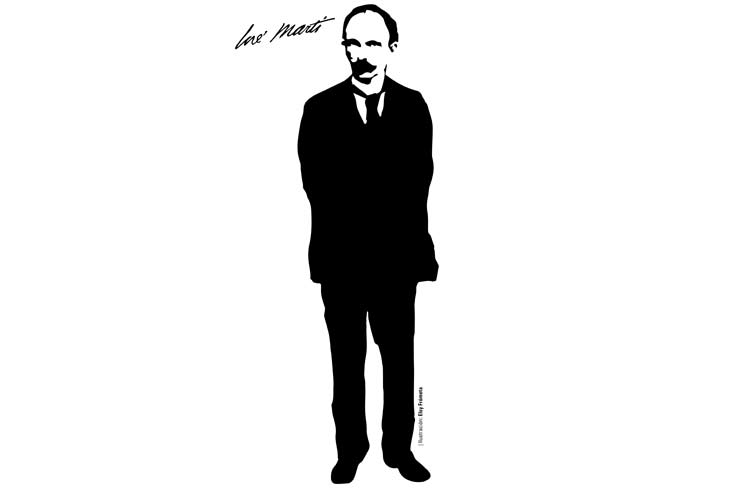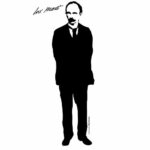In January 1891 a new issue of the New York Illustrated Magazine appeared. A monthly publication in Spanish published in that city by the Panamanian Elías de Losada.
In an affectionate letter to Losada, dated November 17, 1990, José Martí accepted his commission to write a few pages for the January issue, Nuestra América, an extensive essay, considered one of his fundamental works for contributing decisively to the understanding and defense of Latin American identity and the identity and sovereignty of our peoples and that this January completed 130 years of validity.
The essay Our America is composed of only 11 paragraphs, but in any of its editions it occupies many pages.
We would be surprised if people with so many daily duties and affairs such as Martí could prepare an essay of such length and such scope of idea and wealth in such a short time, if they did not know his extraordinary originality of thought and his speed in the exercise of writing.
Although the essay Our America is a unit of argumentative logical sequence typical of the apostle’s writings, in the text you can see three parts of deep analysis on the subject of our continent: The first is developed during the first two paragraphs aimed at marking the importance of the unitary defense of our lands.
From the image of the vain villager, locked in his village affairs and oblivious to the world, Martí maintains that the time demanded immediate action to protect our region. Thus, it demands trenches of ideas, because it is time to recount and march together, and we have to walk in a tight box, like silver in the roots of the Andes.
The second part is the most extensive and is dedicated to studying in detail how and why independent Latin America lived under permanent instabilities, which weakened its ability to prevent its fall under its hegemonic powers.
And Martí said: ?The government must be born from the country, the spirit of the government must be of the country, the form of government must conform to the country’s own constitution. There is no battle between civilization and barbarism but that of false scholarship and nature?.
In the last part of the essay Our America, our national hero refers to the outside tiger, the enemy: “The disdain of the formidable neighbor who does not know it is the greatest danger of our America.” Martí speaks of the growing and powerful empire of the northern neighbors.
This alert, undoubtedly anti-imperialist, in the face of growing expansionism in the United States, is the logical and correct conclusion of the one who would summon the Cuban people to the war necessary for their independence and thus contribute to preventing the spill of the rising northern power through the romantic nations of the continent and the painful islands of the sea, where the seed of the new America would flourish.




